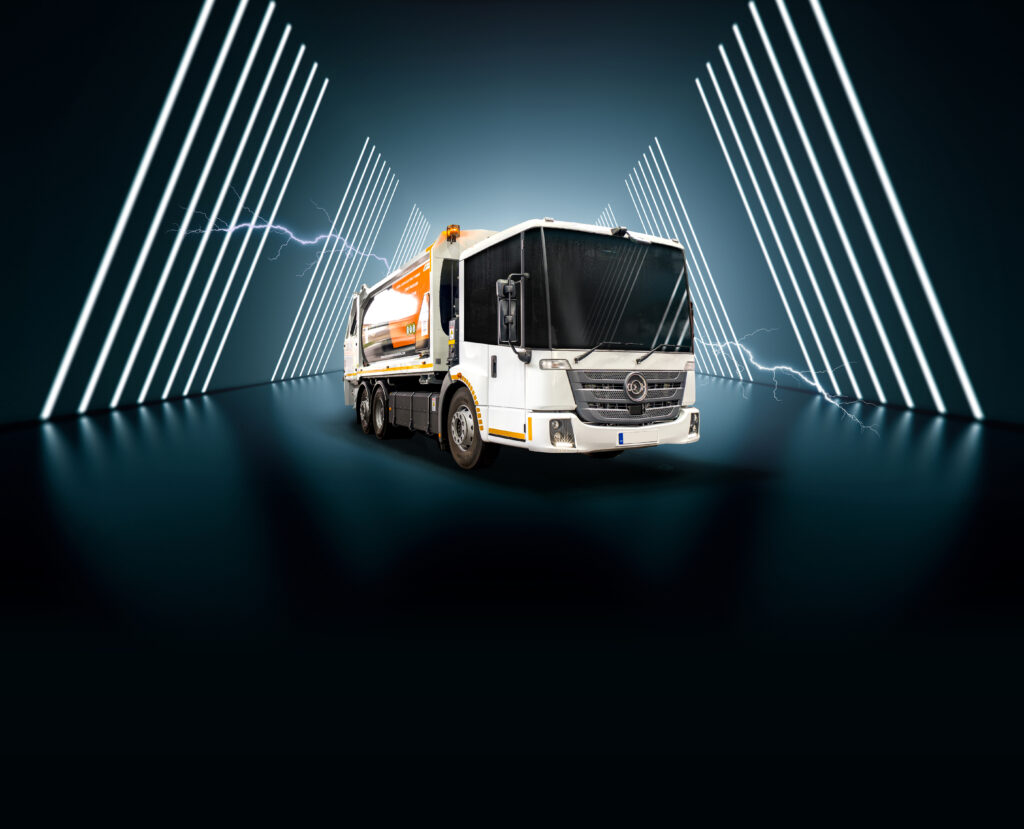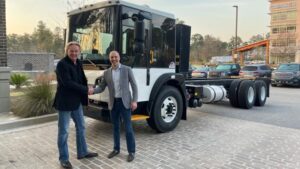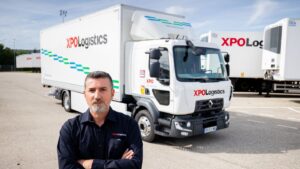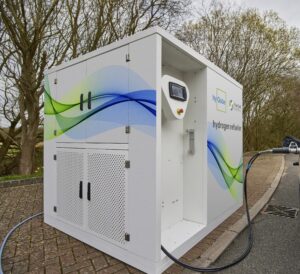Blackburn-based Electra Commercial Vehicles has announced that Biffa has purchased 27 Electras for its Manchester City Council waste management agreement.
This investment is the most significant purchase of electric refuse collection vehicles ever in the UK. Manchester City Council will replace almost half of its waste collection fleet with Electras.
The electric refuse collection vehicles are based on an Electra Econic chassis, a Geesink N4 body, and an Omnidel split bin lift from Terberg Matec. The move is a major step towards delivering the council’s zero-carbon action plan that aims to halve direct carbon emissions by 2025 as part of a broader drive to make Manchester zero carbon by 2038 at the latest. The switch to electric RCVs will save around 900 tonnes of CO2 a year, cutting around 4% of Manchester’s current direct annual emissions.
Biffa holds the contract for waste collection and street cleansing in the city. The new electric RCVs will replace diesel trucks that have reached the end of their life. The purchase will cost the council £9.79 million, only a fraction more than a like-for-like replacement with diesel vehicles. However, Manchester City Council will be able to deliver clear environmental gains by investing in this new electric fleet over the vehicles’ ten-year expected lifespan. Energy savings and the availability of grants will offset the price difference.
Councillor Rabnawaz Akbar, Executive Member for Neighbourhoods for Manchester City Council, said: ‘As a council, we have said all along that we will have to do things very differently to realise our ambition to cut carbon emissions dramatically. We are proud, together with Biffa, that our waste collection service is at the vanguard of the forward-thinking response to the climate change challenge, and we hope it will inspire others to follow suit.
‘The only difference to the new service that residents should notice is that the new vehicles are quieter and cleaner.’
Sid Sadique, Chairman of Electra Commercial Vehicles, said: ‘This has been a long project in partnership with Manchester City Council and Biffa. The 18-month trial of an Electric RCV proved that a fully electric vehicle does the same job as its diesel equivalent with no compromise on payload or operation and the added benefit of zero tailpipe emissions.’
Councillor Angeliki Stogia, Executive Member for Environment for Manchester City Council, said: ‘This significant investment in new electric refuse collection vehicles is an excellent example of the council’s commitment to playing its full part in tackling climate change and will also contribute to better air quality.
During the Coronavirus lockdown, we have seen how a reduction in pollution and better air quality benefits everyone. Climate change is an urgent challenge that we are getting on with addressing.
’Roger Edwards, Managing Director, Municipal Division at Biffa, said: ‘This is the latest development in our long-standing partnership with Manchester City Council and demonstrates Biffa’s commitment to being at the forefront of electric refuse collection vehicle innovation.‘Embracing this technology forms a key part of our group-wide sustainability strategy and our target to reduce carbon emissions by 50% by 2030. We look forward to this project with Manchester and are confident it will be the first of many of its kind across the country as the UK sees the multiple benefits that electric refuse vehicles can bring.’
Manchester City Council and Biffa were supported and advised on the purchase by the Energy Saving Trust. Government plug-in grants, designed to encourage a switch to electric vehicles, ensured a reduced fleet cost for the council.
The vehicles will go into operation in the autumn. The last truck is expected to be delivered towards the end of 2020.




